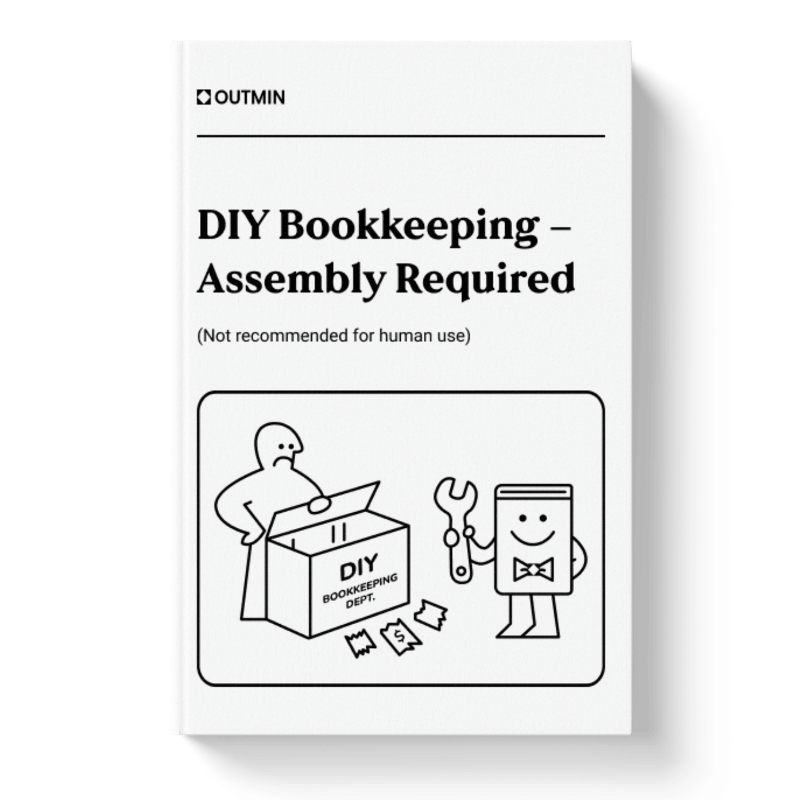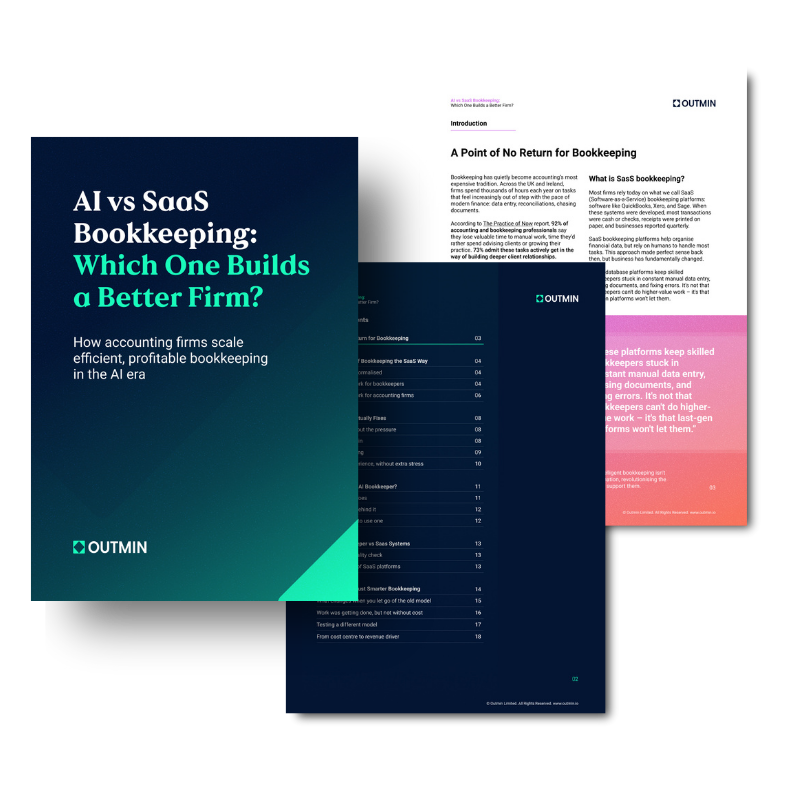November 28, 2024
Is Your Overhead Too High? Why We Track Revenue Overhead for Our Hospitality Customers

In the restaurant industry, success isn’t just about bringing in revenue. It’s also about keeping a close eye on operational costs, especially overhead expenses like rent, utilities, and general maintenance – these essential costs quickly eat into profits if they’re not closely managed.
At Outmin, we emphasise the importance of tracking overhead to help clients make smarter, data-driven decisions, particularly in the competitive hospitality industry.
So, how can restaurant owners and hospitality managers make sure their overhead doesn’t spiral out of control? Let’s explore why tracking revenue against overhead matters – and why it might be the smartest move you make for your business.
What Are Overhead Costs?
When it comes to your restaurant or hospitality business, overhead costs are a necessary part of keeping the doors open and customers happy.
Overhead includes all indirect expenses that don’t directly generate revenue but are crucial for operations, from customer service to kitchen operations. For a restaurant, these could include rent, utility costs, insurance, and administrative expenses.
Unlike direct costs like food costs or labour costs for kitchen and serving staff, overhead costs don’t fluctuate directly with sales.
This stability is both a blessing and a challenge: while overhead costs remain relatively constant, they can quickly chip away at profitability if not carefully monitored.
Identifying Overhead Costs
The first step to managing overhead is understanding what expenses fall into this category. In the restaurant industry, overhead expenses generally include:
- Rent and property costs: This can be a large monthly expense, especially in urban areas where commercial space owners charge high rates. Based on industry insights, keeping lease costs between 5 and 8 per cent of total revenue is considered a smart target.
- Utilities and energy costs: Gas, electricity, and water bills contribute to monthly operational costs and vary based on business size. According to a report by the Irish Tourism Industry Confederation (ITIC), “Between September 2020 and April 2023, the average cost of electricity for consumers increased by 112 per cent. Although prices have subsequently started to moderate, average electricity prices in January 2024 were still 79.8 per cent higher than in September 2020.” This trend has put increased pressure on hospitality businesses.
- Administrative expenses: This includes payroll costs for management, software subscriptions for team management tools, and any administrative salaries.
- Maintenance and repair costs: Regular maintenance of kitchen appliances, HVAC systems, and furniture can help prevent costly repairs that disrupt day-to-day operations.
- Insurance: Protects against unexpected events but is an unavoidable monthly expense for restaurants.
- Marketing and promotional materials: Includes expenses for digital advertising, promotional materials, and customer service initiatives to retain a loyal customer base. This is particularly important for restaurant owners looking to grow a broader audience.
Each of these indirect costs has a direct impact on your restaurant's profit margins, and collectively, they make up a considerable portion of operational expenses. By understanding and controlling these expenses, restaurant owners can make informed choices on how to allocate their resources.
How to Calculate Overhead Percentage
Knowing your overhead percentage is essential for understanding how much of your revenue goes toward non-revenue-generating costs.
Here’s what you need to do:
- Tally Up Overhead Costs: Start by identifying your fixed costs (like rent and insurance) and averaging variable costs (like utilities and marketing). Organise them by category to get a total monthly expense baseline.
- Calculate Revenue: Use your monthly or annual revenue, depending on the timeframe you want to analyse.
- Divide & Multiply: Divide your total overhead costs by revenue, then multiply by 100. Voilà – that’s your overhead percentage!
Example: If your monthly overhead costs are €15,000 and your revenue is €60,000, your overhead percentage is (15,000 ÷ 60,000) x 100 = 25%.
Tracking this percentage monthly helps ensure your costs stay in line with your revenue goals.
Setting a Baseline: What’s a Healthy Overhead Ratio?
In the hospitality industry, the goal is often to keep overhead expenses at a reasonable percentage of total revenue. An overhead ratio of about 35% or lower is generally ideal, allowing room for reinvestment while keeping financial stability. However, this can vary depending on location and size.
Restaurant margins are tight, so keeping a pulse on your overhead costs is critical. By establishing a clear monthly expense baseline, you'll spot budget creep early and have room to course-correct before it impacts your bottom line.
The Impact of High Overhead Costs on Profitability
Without a solid handle on overhead expenses, even a bustling restaurant can run into profitability issues. High overhead costs can really eat away at profit margins, meaning more of the revenue goes toward keeping the lights on rather than increasing the bottom line…
For example, a high monthly rent paired with increasing utility costs or expensive kitchen appliances can significantly reduce the profits from an otherwise successful month.
When overhead isn’t properly managed, it becomes difficult to reinvest in the business and maintain financial health, limiting opportunities for growth and improvement.
Why Tracking Revenue Overhead is Key to Financial Health
Knowing your overhead isn’t just for accounting; it’s about making informed decisions that drive your business forward. Tracking it in relation to revenue gives you a clearer picture of profitability. Here’s why it matters:
- Cost Savings: Cost Savings: Identifying where expenses can be trimmed, such as switching to energy-saving appliances or negotiating rent, can make a positive impact on the budget.
- Enhanced Customer Experience: By understanding where your money is going, you can make better decisions that improve the overall customer experience without overspending.
- Revenue Benchmarking: Setting goals for your overhead expenses in relation to revenue helps you measure whether you’re on track financially.
- Future Planning: Knowing your financial baseline lets you set realistic targets, so when you want to expand, add new menu items, or improve customer service, you’re making the right moves.
Tips to Keep Overhead Costs in Check
Cutting down on overhead isn’t about drastic measures – it’s about smart, simple choices that can make a big difference over time. Here’s how to get started:
1. Revisit Your Rent Deal
If rent’s eating up a big chunk of revenue, see if there’s wiggle room in your lease. Some landlords are open to negotiating, especially if you’re a long-term tenant. Securing a longer lease at a lower rate could ease that monthly pressure (Doesn’t hurt trying, right?).
2. Go for Energy-Efficient Upgrades
Old equipment can drain both energy and cash. Consider switching to LED lighting, smart thermostats, and energy-saving appliances. Small changes add up over time, and you’ll feel the difference in your utility bills.
3. Keep Things Running Smoothly with Maintenance
Breakdowns are never fun (or cheap). Preventative maintenance for your kitchen equipment, dishwashing stations, HVAC, and plumbing helps avoid sudden, costly repairs. Scheduling regular check-ups might seem minor, but it adds up to big savings in the long run.
4. Go Digital with Marketing
Traditional advertising can be pricey. Instead, focus on digital strategies that reach your audience directly – think social media, email newsletters, and local influencer shoutouts. They’re often cheaper and more effective!
5. Streamline Your Admin with Software
Manual admin tasks can rack up costs and time. Automate things like scheduling, payroll, and accounting with software solutions that simplify the workload. Less paperwork, fewer hours… more time and money saved.
6. Smart Inventory Management
Inventory management software can help avoid over-ordering and food waste by tracking what you have in real-time. Plus, fewer orders mean lower shipping and procurement costs. A little tracking goes a long way!
7. Check Your Insurance Rates Annually
Insurance is essential, but you don’t need to overpay. Compare rates yearly to make sure you’re getting solid coverage without the unnecessary extras.
By making a few small changes, you’ll start to see those monthly savings stack up – money that you can put back into your business, where it belongs.
Making Overhead Tracking Effortless with Outmin
Keeping tabs on overhead shouldn’t feel like a second job. With Outmin, restaurant owners get an all-in-one accounting solution designed specifically for hospitality. We handle everything you need, from bookkeeping and payroll to tax compliance and financial reporting – all in one place.

Our Cash Insights feature offers a live look at your cash flow, right from your dashboard and updated daily. And with weekly and monthly reports, you can track the KPIs that actually matter to your business – overhead ratios, revenue, and other critical metrics – giving you clear insights every step of the way. You’ll see exactly how your overhead is stacking up, so you’re never left guessing.
Want to simplify your accounting and track what counts? Let’s talk about how Outmin can keep your finances clear and your focus where it belongs. Book your demo today.









